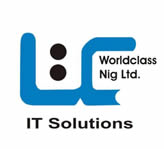The Role of Singapore’s MAS in Shaping Crypto Asset Management Practices Leave a comment
Introduction
In recent years, the emergence of cryptocurrencies and blockchain technology has disrupted traditional financial systems, creating new opportunities and challenges for investors and regulators alike. As the popularity of cryptocurrencies continues to grow, so does the need for effective regulation and oversight to protect investors and ensure the stability of financial markets.
One country that has taken a proactive approach to regulating the cryptocurrency market is Singapore. The Monetary Authority of Singapore (MAS) has played a crucial role in shaping crypto asset management practices in the region, providing a regulatory framework that balances innovation with investor protection. In this article, we will explore the key initiatives undertaken by the MAS and their impact on the crypto asset management industry.
Regulatory Framework
The MAS first released guidelines on the regulation of digital token offerings in November 2017, outlining the types of tokens that would be considered securities and therefore subject to existing securities laws. This move provided clarity to market participants and set the tone for future regulations in the sector. Subsequent amendments were made to the Payment Services Act in January 2020, requiring all providers of digital payment token services to be licensed and regulated by the MAS.
These regulations have helped to create a more secure and transparent environment for investors, reducing the risks associated with fraudulent or unscrupulous activities. By imposing strict licensing requirements and compliance standards, the MAS has raised the bar for crypto asset management practices in Singapore, setting a AI Invest Maximum precedent for other jurisdictions to follow.
Collaboration with Industry Stakeholders
In addition to issuing guidelines and regulations, the MAS has actively engaged with industry stakeholders to foster collaboration and innovation in the crypto asset management sector. The MAS has hosted numerous roundtable discussions and events to facilitate dialogue between regulators, industry players, and investors, allowing for the exchange of ideas and best practices.
One of the key initiatives launched by the MAS is the Sandbox Express program, which allows fintech firms to test innovative financial services in a controlled environment. This program has helped to accelerate the development of new crypto asset management solutions and technologies, providing a platform for startups to showcase their products and services to potential investors.
The MAS has also partnered with industry associations and research institutions to conduct studies and surveys on the impact of cryptocurrencies and blockchain technology on the financial industry. These collaborations have led to the publication of research papers and reports that provide valuable insights into the potential risks and benefits of investing in crypto assets.
Investor Protection
One of the primary objectives of the MAS is to protect investors from scams and fraudulent activities in the crypto asset management sector. To achieve this goal, the MAS has implemented strict guidelines on the marketing and distribution of digital tokens, requiring companies to provide clear and accurate information to investors.
The MAS has also established a consumer advisory website, providing investors with resources and tools to help them make informed decisions about investing in cryptocurrencies. By educating investors about the risks and pitfalls of the market, the MAS has helped to improve transparency and accountability in the sector.
Future Outlook
Looking ahead, the MAS is expected to continue its efforts to regulate and supervise the crypto asset management industry in Singapore. The MAS has indicated its commitment to promoting innovation while upholding high regulatory standards, striking a balance between fostering growth and protecting investors.
As cryptocurrencies become more mainstream and integrated into the global financial system, regulators around the world will need to adapt their frameworks to accommodate these changes. The MAS has positioned itself as a leader in this space, providing a model for other countries to follow in shaping crypto asset management practices.
Conclusion
In conclusion, the MAS has played a crucial role in shaping crypto asset management practices in Singapore, providing a regulatory framework that balances innovation with investor protection. Through its guidelines, partnerships, and initiatives, the MAS has created a secure and transparent environment for investors to engage in the cryptocurrency market.
As the crypto asset management industry continues to evolve, the role of regulators such as the MAS will become increasingly important in ensuring the stability and integrity of financial markets. By continuing to collaborate with industry stakeholders and prioritize investor protection, the MAS is well-positioned to lead the way in shaping the future of crypto asset management practices.


